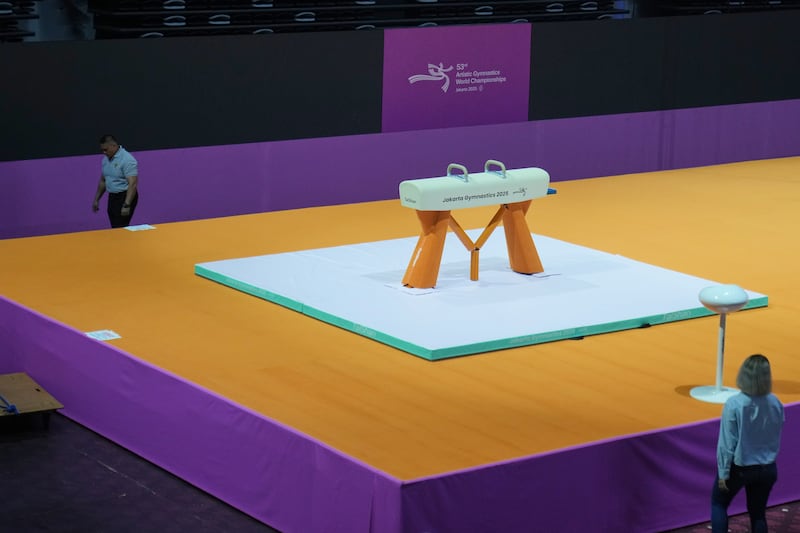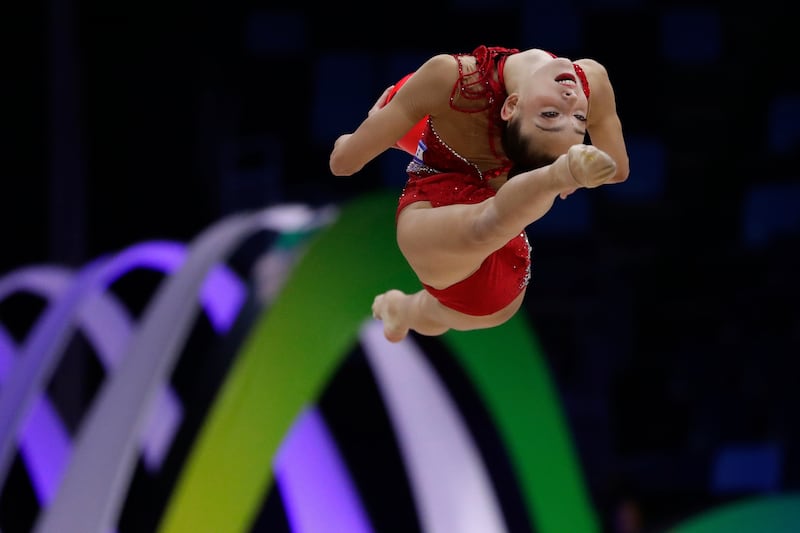The International Olympic Committee took swift action against Indonesia for denying visas to Israeli athletes set to compete in the 53rd Artistic Gymnastics World Championships being held in Jakarta through Saturday.
Topping the list? Indonesia’s bid for the 2036 Summer Games has been halted.
So, likely, has hosting any other international sports events or meetings.
And Indonesia’s national Olympic committee as well as the International Gymnastics Federation are being summoned to the IOC’s Swiss headquarters to explain why the Israeli team wasn’t allowed to compete.
The actions were taken by the IOC Executive Board, which hadn’t been scheduled to meet until early December. But just days after issuing a statement promising to take up the issue, the board, led by new IOC President Kirsty Coventry of Zimbabwe, met remotely.

“The IOC EB took the opportunity to remind all Olympic Movement stakeholders of the importance of free and unfettered access to the respective country for all participants to attend international competitions without restrictions,” a statement released Wednesday said.
The discussion, sparked by what the IOC said was the cancellation of visas for Israeli athletes by the Indonesian government, included “both this specific situation and the recurrent global issue regarding athletes’ access to international competitions,” according to the latest IOC statement.
Indonesia’s senior minister of law, Yusril Ihza Mahendra, announced earlier this month in an Instagram post that, translated, said the Israeli visas were being rejected “in line with Indonesia’s commitment to support Palestinian independence.”
Among the Israeli team members unable to compete is Artem Dolgopyat, the defending world champion in the men’s floor exercise and a gold medalist at the 2020 Summer Games in Tokyo that were delayed a year because of the COVID-19 pandemic.
The Muslim-majority country’s decision to deny the visas was not protested by the international gymnastics federation, known as FIG. In a statement, the federation took “note” of the decision and recognized “the challenges that the host country has faced in organizing this event.”
The action taken by the IOC Executive Board ends “any form of dialogue” with Indonesia’s national Olympic committee about hosting any future Olympics or Olympic-related events until there are ”adequate guarantees" that all participants can attend, regardless of nationality.
Olympic leaders also recommended that the international federations that control sports avoid Indonesia until they are given similar guarantees. The federations are also being asked to include a guarantee of athlete access in hosting agreements for future Olympic qualifying events.
Indonesia’s Youth and Sport Minister Erick Thohir said in a written response Thursday to the IOC actions the government understood its decision to prevent the Israeli gymnastics delegation from entering the country would have consequences, The Associated Press reported.
“Indonesia will continue to play an active role in various sporting events at the Southeast Asian, Asian, and world levels, so that Indonesian sports can be an ambassador and a reflection of the nation’s greatness in the eyes of the world,” Thohir’s statement said.
In September, the IOC president told reporters that with “more and more things that are not our proudest moments as humanity,” leaders had reaffirmed that ensuring sport can continue to “build a better world” is a top priority.
Concerns were raised in an IOC statement then about “the disruption of competitions across the world, the restriction of access to host countries for athletes, and the boycotting and cancellation of competitions due to political tensions,” without naming offenders.
Indonesia has consistently refused to host Israeli delegations since the 1962 Asian Games, according to the AP, and previously lost a soccer world cup event in 2023 “amid political turmoil regarding Israel’s participation.”


